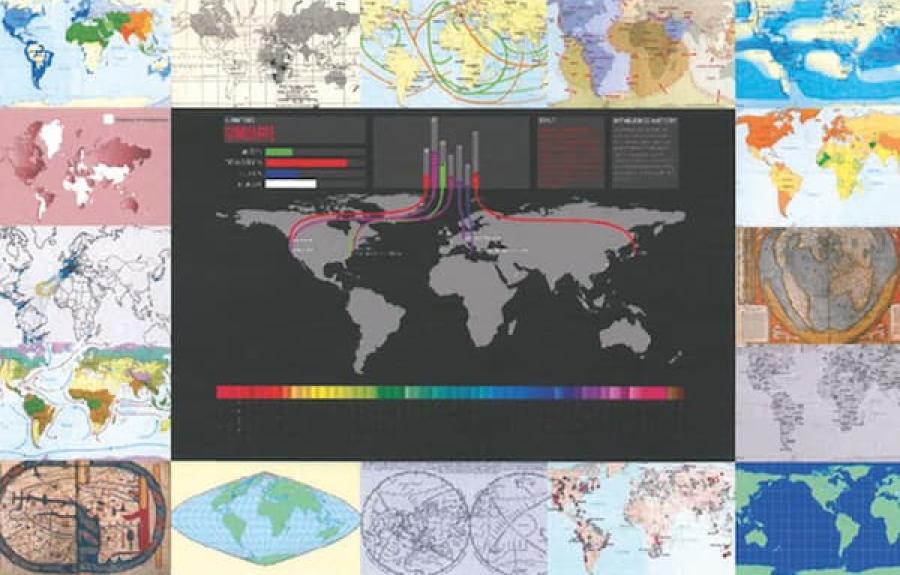The Society for the Humanities invites scholars to reflect this year upon the theme of “Networks/Mobilities” in order to further understanding of historical and contemporary flows of peoples, materials, images, and ideas across physical and virtual boundaries. Our Senior Scholars in Residence will be Keller Easterling (Associate Professor of Architecture, Yale University) and Brian Massumi (Professor of Communications, University of Montreal).
Relations of mobility and immobility, insofar as they are being reconfigured by broad-ranging new technologies of surveillance, detention, and legal/administrative regulation, are also germane to the theme. The Society encourages applicants to investigate the cultural, social, philosophical, and methodological implications of the theme.
In addition to raising wide-ranging historical inquiries and broad conceptual and epistemological issues, applicants might ask whether the commonplace tropes of diaspora, hybridity, and migration suffice for understanding contemporary globalization and shifting patterns of social and cultural influences through travel, trade, and migration of peoples, goods, and ideas--overland and across water and air. While the Indian Ocean, the Mediterranean, and the South Pacific have been focal sites for analysis of movements over several centuries, critical practices and enhanced communications provide additional networks of diverse and activated mobilities, from an emergent understanding of Islamic civilization to a broader recognition of comparative Latin American and Asian cultures and their relation to the West.
Of equal interest is the role of digital culture in relation to migrations, networking, and global cosmopolitanisms. Just as ancient and early modern technologies of writing have been compounded by modernist technologies of vision and sound, from the phonograph to the cinema, recent online networks have extended the range of cultural mobilities, and with them the cast and reach of experience. To what extent might these new mobilities constitute emergent modes of embodiment?
Scholars are encouraged to investigate transformations of concepts, theories and practices across historical periods, disciplinary boundaries, and social contexts. How might we consider the migration of ideas from the humanities and arts to the information and biological sciences and vice-versa, or the mobilization of academic theories and conceptual networks by activist practices inside and outside of the academy. Such migrations, mobilities and networks need not be actual but could also be virtual in the mobilizations of ideas and artistic practices.

